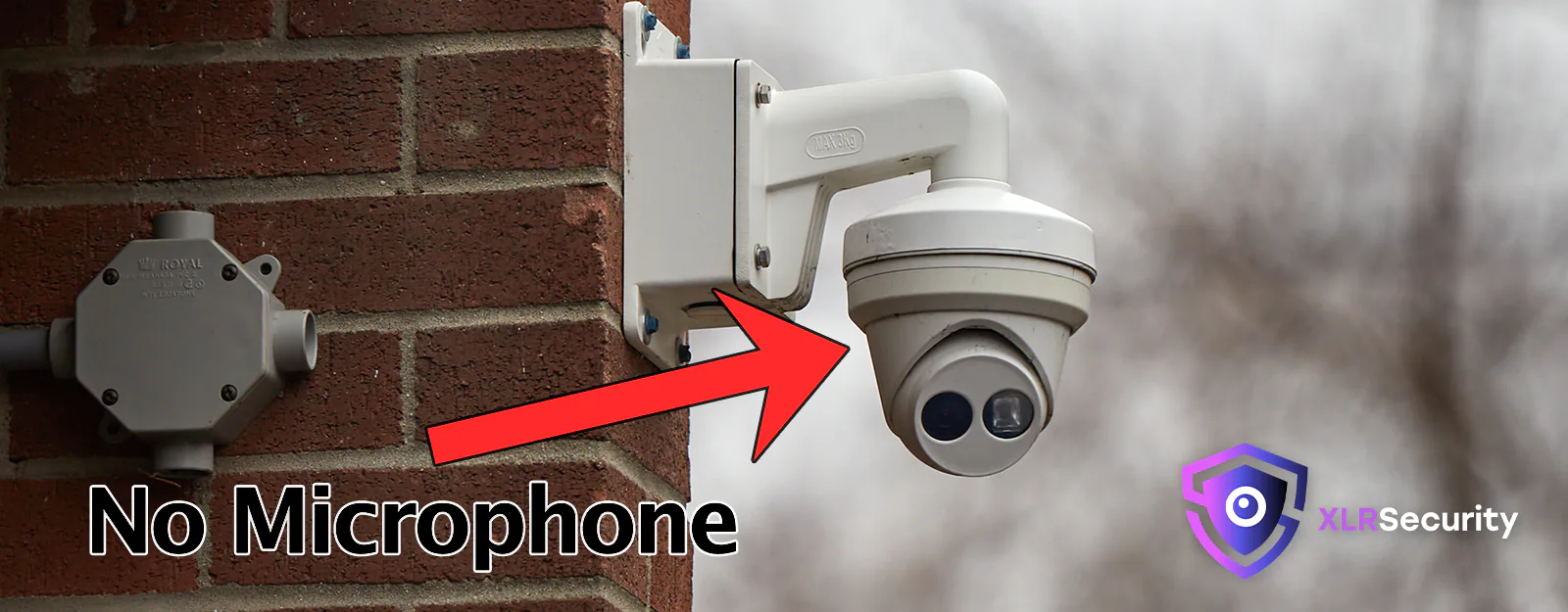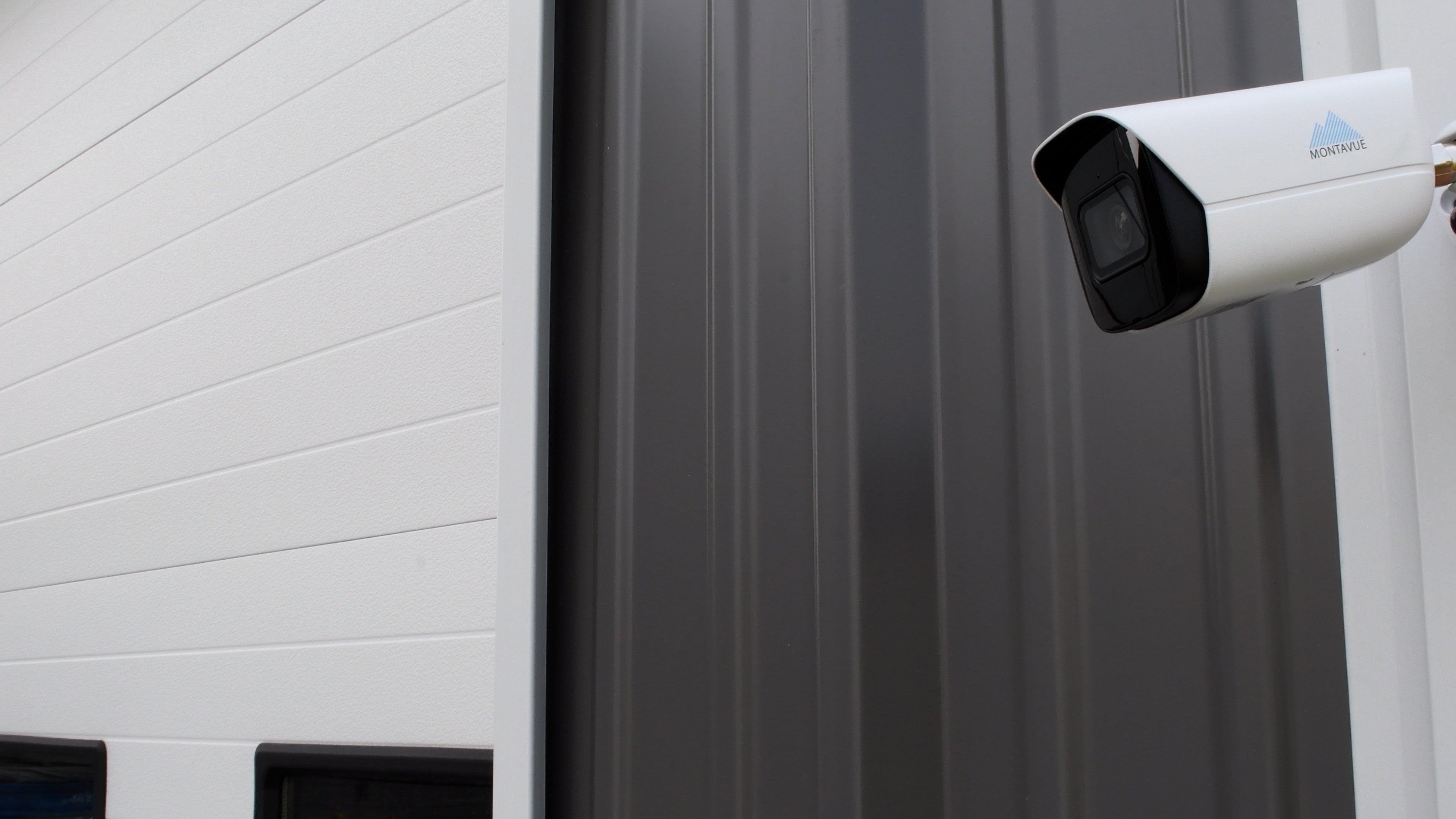Yes, security cameras can record audio, but legality varies by location. Understanding the capabilities and legalities of audio recording in security cameras is crucial for users.
In today’s digital age, enhancing security measures has become a priority for both homeowners and businesses alike. Security cameras serve as vigilant eyes, deterring potential intruders and providing valuable evidence in case of incidents. The addition of audio recording can significantly enhance the functionality of these systems, offering a more comprehensive understanding of events.
It’s important to navigate the technical specifications and legal implications carefully. This ensures that the integration of audio capabilities into security systems not only boosts safety but also adheres to legal standards, protecting privacy rights. By staying informed and compliant, users can maximize the benefits of their security systems while respecting legal boundaries.
Legal Aspects Of Audio Recording
Legal Aspects of Audio Recording with security cameras is a crucial topic. Owners must understand laws before using such devices. This ensures privacy rights are respected. Let’s explore key legalities.
Privacy Laws And Regulations
Various regions have strict privacy laws. These impact audio recording. The United States federal law permits recording with one-party consent. This means one person in a conversation must know about the recording. States may have different rules. It’s essential to check local laws. They dictate what is legal in specific areas.
Consent And Notification Requirements
Consent is key for legal audio recording. In some places, signs must inform people about active recording. This is part of notification requirements. Consent can be explicit or implied. Explicit consent involves a clear agreement. Implied consent is given when a person continues a conversation despite knowing about the recording.
- Check local statutes for precise guidelines.
- Use signs to inform about audio surveillance.
- Obtain consent where required.
Technical Capabilities Of Security Cameras
Today’s security cameras are smart. They see and sometimes hear. Let’s explore their audio abilities.
Audio Features In Modern Security Systems
Modern security cameras are more than visual guards. They come with built-in microphones. This lets them record sounds. Think of them as your eyes and ears.
- Two-way audio – Speak and listen through the camera.
- Noise reduction – Clear sound, less background noise.
- Sensitivity settings – Adjust to pick up different sound levels.
Limitations In Audio Recording
Audio recording is not always perfect. There are rules and tech limits.
| Limitation Type | Details |
|---|---|
| Legal Restrictions | Some places don’t allow audio recording without consent. |
| Distance | Microphones have a range limit. Far sounds may not be heard. |
| Interference | Things like wind or traffic can disrupt audio capture. |
Benefits Of Audio In Surveillance
Security cameras with audio bring more clarity to surveillance. They enhance security systems beyond the visual. Users gain real-time insights into incidents.
Enhanced Security Measures
Audio adds a layer of protection to security footage. Bold sounds like shouts or glass breaking trigger alerts. Operators assess threats more accurately. Audio allows for immediate response to potential dangers.
- Audio triggers for alarms
- Quick threat assessment
- Accurate context for visuals
Practical Scenarios For Audio Use
Audio-equipped cameras prove useful in various situations. They offer insights where visuals fall short. Here are key scenarios:
| Scenario | Benefits |
|---|---|
| Home Security | Family safety, monitor for break-ins |
| Retail Shops | Prevent theft, resolve disputes |
| Industrial Areas | Monitor operations, safety compliance |

Credit: www.xlrsecurity.com
Privacy Concerns With Audio Surveillance
Privacy Concerns with Audio Surveillance stir significant debate. Unlike video, audio can capture private conversations. This raises questions about where and how audio surveillance should be used. Let’s dive into the concerns surrounding this topic.
Potential For Eavesdropping
Audio surveillance cameras can accidentally record private conversations. These might include sensitive personal or business talks. Such incidents can lead to breaches of trust and legal issues.
- Places like homes and private offices are at higher risk.
- People might not know they are being recorded, raising ethical concerns.
Balancing Security And Privacy
Finding a middle ground is crucial. Security needs must align with respect for privacy. Here are ways to achieve that balance:
- Only use audio recording where legally allowed and necessary.
- Inform all parties that audio surveillance is in place.
- Implement strict data protection measures to safeguard recordings.
| Concern | Solution |
|---|---|
| Eavesdropping Risks | Signs indicating audio recording |
| Legal Issues | Follow local laws on surveillance |
| Data Protection | Secure storage of recordings |
Setting Up Audio-enabled Security Cameras
Are you thinking about setting up audio-enabled security cameras? Good idea! They let you hear what’s happening, not just see it. Let’s dive into how to set them up right.
Installation Best Practices
- Choose the right spot: Pick a place where the camera can see and hear well. Near the front door is a smart choice.
- Keep it legal: Know the laws about recording audio. Some places say it’s okay, some don’t.
- Test the signal: Make sure the camera can talk to your network without trouble. Walls can be tricky for signals.
Configuring Audio Settings
To get clear sound, follow these steps. They make a big difference.
- Access the camera’s settings: Use a computer or phone app to find the audio settings.
- Turn on audio recording: There’s usually a switch or button. Make sure it’s on.
- Adjust the volume: Not too loud, not too soft. Just right is perfect. This helps you hear clearly.
Remember, using audio-enabled security cameras helps keep your place safe. You can see and hear what’s going on. Just make sure you set them up well!

Credit: montavue.com
Best Practices For Audio Recording
When adding audio to security footage, best practices must guide you. These ensure the security system respects privacy and follows the law. Let’s explore these practices under two key areas.
Ethical Considerations
Recording audio brings ethical challenges. It’s not just about what’s legal; it’s about what’s right. Consider these points:
- Inform all parties that audio recording is active.
- Respect private conversations by creating audio-free zones.
- Limit audio monitoring to areas where security risks are high.
Maintaining Compliance
Laws vary by region, so compliance is key. Follow these steps:
- Understand local laws regarding audio surveillance.
- Display clear signs about audio recording in use.
- Ensure recordings are secure and access is controlled.
Integration With Other Security Systems
The ‘Integration with Other Security Systems’ enhances overall safety. Modern security cameras often include audio recording capabilities. This feature can provide valuable insights when combined with video surveillance. It can also integrate with additional security components for a robust setup. Let’s explore how audio-enabled cameras can work in concert with other systems.
Combining Video And Audio Data
Integrating video and audio data creates a comprehensive security solution. Sound recordings can clarify events captured on video. This dual data approach can aid in detecting threats or reviewing incidents. Let’s break down the benefits:
- Evidence Collection: Clear audio can validate video footage.
- Incident Context: Audio provides additional details about events.
- Real-time Alerts: Systems can trigger alerts based on specific sounds.
Smart Home Systems Compatibility
Audio-equipped cameras often blend with smart home systems. Users can manage multiple devices through a single platform. This union offers convenience and enhanced control over home security. Consider these key points:
| Feature | Benefit |
|---|---|
| Unified Control | Operate security devices with one app. |
| Automated Responses | Set actions for specific audio triggers. |
| Remote Access | Monitor audio and video from anywhere. |

Credit: www.safewise.com
Future Trends In Audio Surveillance
The landscape of audio surveillance is evolving rapidly. Cutting-edge technologies are enhancing the capabilities of security cameras. They can now record high-quality audio. Let’s explore the exciting future trends in audio surveillance.
Advancements In Sound Technology
Security cameras are getting smarter and more sensitive. They can now distinguish between noises. This makes them more effective in monitoring environments.
- Directional microphones pinpoint sound sources.
- Frequency filters reduce background noise.
- High-definition audio captures clearer sounds.
These features help in identifying specific events or threats. They provide better context to visuals.
The Role Of Ai In Audio Analysis
Artificial Intelligence (AI) is revolutionizing audio analysis. AI algorithms can now learn and recognize patterns.
| AI Feature | Function |
|---|---|
| Voice recognition | Identifies individuals by their voice. |
| Sound classification | Detects specific sounds like glass breaking. |
| Anomaly detection | Alerts unusual noises, indicating potential threats. |
AI enhances surveillance by providing real-time analysis. It also offers predictive insights, improving security measures.
Frequently Asked Questions
Do Security Cameras Have Audio Capabilities?
Security cameras can have built-in microphones to record audio, but it’s not standard on all models.
Is Recording Audio Legal On Security Cameras?
The legality of audio recording with security cameras varies by jurisdiction; some require consent from recorded parties.
Can You Disable Audio On Security Cameras?
Many security cameras with audio capabilities allow users to disable the audio recording feature through their settings.
How Does Audio Enhance Security Camera Effectiveness?
Audio adds another layer of surveillance, capturing sounds that may indicate distress, intruders, or other significant events.
What To Look For In Audio-enabled Security Cameras?
Look for clarity of sound, range of audio capture, and compliance with local laws when selecting audio-enabled security cameras.
Conclusion
Understanding the capabilities of security cameras is crucial for privacy and legal compliance. Audio recording features vary, and local laws may restrict their use. Always consult legal guidelines before activating audio surveillance to ensure you’re protecting not just property, but also the rights of individuals.
Safeguarding both can enhance security effectively.





